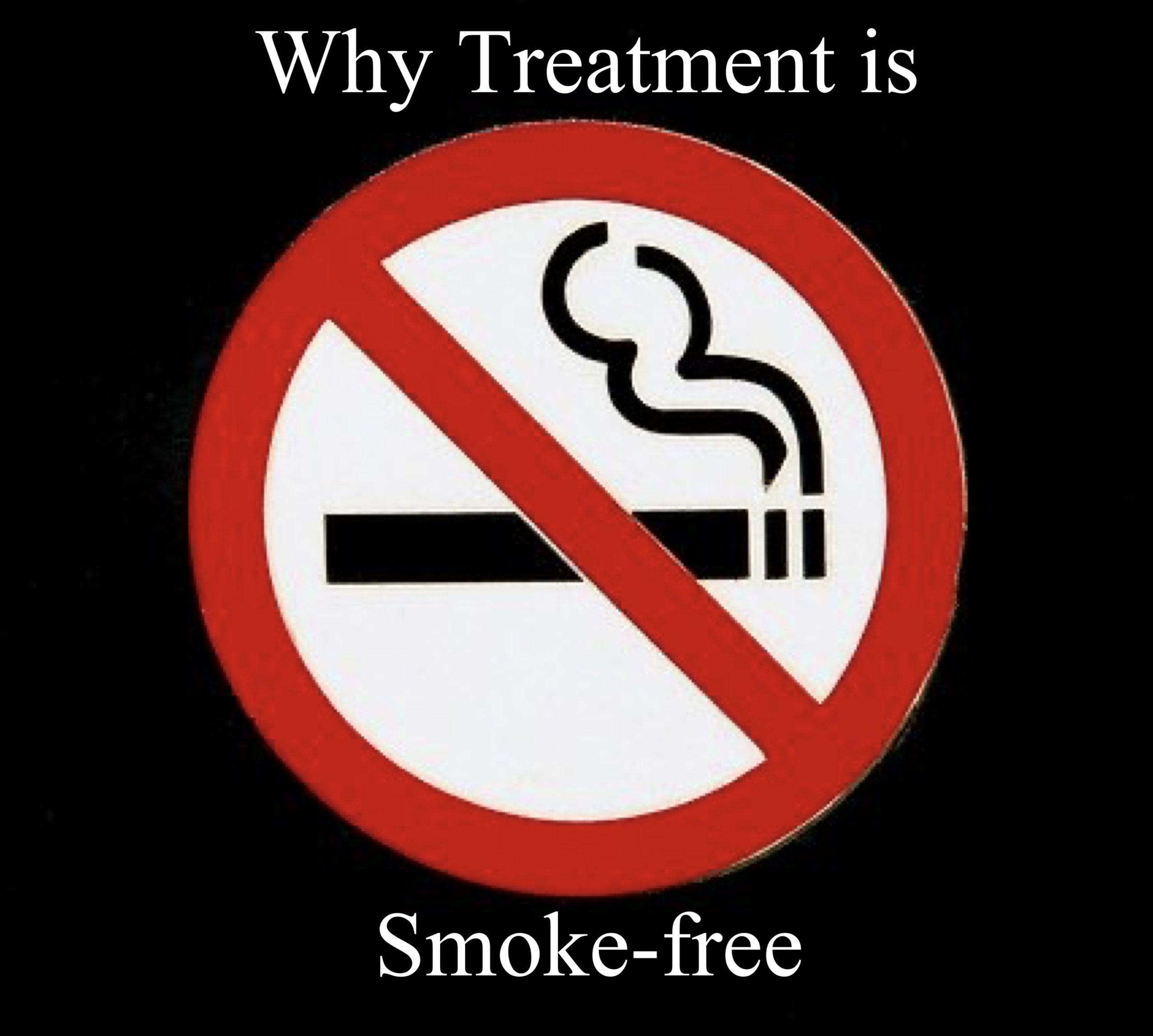
Why Our Treatment is Smoke-Free
For the last few decades a significant amount of time, money and resources have been spent to research and report the benefits of quitting smoking. It’s likely that you have heard that tobacco causes cancer, other health problems and can cause second hand smoking issues. But what are the real benefits of quitting? Below we have outlined the a few physical, mental and social advantages becoming smoke-free.
Physical
Within 48 hours of your last cigarette your body has already begun to heal. Your heart rate returns to normal, your ability to taste and smell restores and your risk of diseases is already starting to reduce. Additionally, in 5 years your body could be completely healed of the scars of tobacco use. Overall, you will be able to sleep better, your lung health will improve, and you will have a decreased risk of many diseases and cancers.
Not only will you feel better, but you will look better. Your skin’s elasticity is greatly affected by smoke, and the constant use of your mouth causes early wrinkling. However, you can slow this process by quitting and focusing on a healthier lifestyle. Additionally, your hair and nails will become stronger and healthier.
While quitting smoking can be a very difficult, it can help to keep these physical benefits in mind to keep you going when withdrawal symptoms are at a peak. Many people can get frustrated about dealing with withdrawal and the support of family, friends or a support group can help.
Mental
One of the reasons many people are reluctant to take the next step is the mental anxiety attributed to withdrawal. If you have smoked for a long time, it’s likely that it’s frightening to think about having to deal with stressful situations without the help of a cigarette. But truthfully, cigarettes don’t necessarily have any mental health benefits. They merely stave off withdrawal symptoms. Don’t forget that withdrawal symptoms pass and the increased feelings of accomplishment and freedom from the chains of nicotine will be there to stay.
In fact, many tobacco quitters feel less anxiety, less depression and a happier lifestyle when compared to the time they smoked. There are wonderful by-products that come from feeling less anxiety such as better memory, less irritability and better problem solving skills.
Social
It may seem like small-scale spending when you buy one pack a day at around $8 per pack, but that adds up to over $3,000 per year spent on cigarettes. When you do start to quit, try putting that money that you would spend in a jar or separate bank account. Then, when you hit your important milestones, take that money and spend it on something really nice for yourself. Take a trip, buy a new outfit, or register for a class.
Aside from the money, think about the number of things smoking does to restrict your social life. You probably need to consider people that are allergic to tobacco and also remember to refrain when you are around pregnant friends. But when you quit you will be able to plan events without thinking about when or where you will need to take a cigarette break. Furthermore, the smell of tobacco can make some people feel sick. Moreover, it may not be something you can smell on yourself.
We want the best for all our clients. When you quit nicotine at the same time as substance use the chances of long-term recovery grow exponentially. We provide smoke-free environments in our support groups and we treat the whole person.
There are many different ways to combat substance use disorders and each patient is different. If you or someone you know is looking for treatment, please contact the professional team at Lifeline Connections. You can visit Lifelineconnections.org or call (360) 397-8246 for more information.
Sources:
